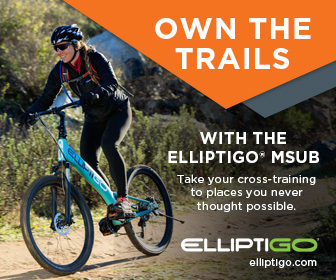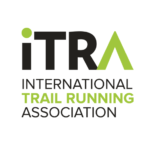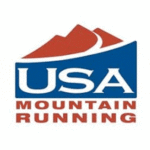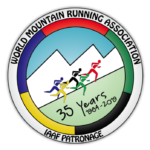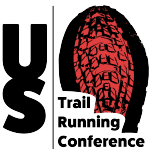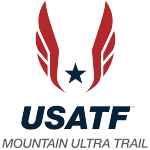
Last month, professional mountain runner Kilian Jornet launched his Outdoor Friendly Pledge at the US Trail Running Conference over Zoom to an audience in Fayetteville, AR, and virtually around the United States. Kilian’s pledge is driven by his passion for preserving the environment and aims to inspire events, athletes, brand and federations to make commitments to sustainability initiatives. I spoke with Kilian after the 2020 US Trail Running Conference (pictured below) to learn more about his Outdoor Friendly Pledge and vision for a more eco-conscious and sustainable outdoor sports community.
[TAYTE POLLMANN] Tell us more about your recent projects to support sustainability initiatives in the outdoor sports community.
[KILIAN JORNET] As outdoor athletes, we may have a better understanding of environmental issues than other types of athletes, but that doesn’t always translate into taking action to solve these issues. We may care about making changes, but not know how to actually go about making them. I have worked for the past year with other athletes and experts in the environmental field to create a pledge of commitments that event organizers, athletes, brands and federations should take from now to 2030 to make outdoor sports more sustainable. We wanted to share tools and give people specific actions to make it easier.

[TAYTE] When did you first get involved in supporting sustainability movements and tell us about your Kilian Jornet Foundation?
[KILIAN] I’ve been conscious about nature and the environment since I was a kid, but it’s been in the last five years that I’ve started collaborating with environmental nonprofits and associations. Last year, I set out to use my influence as a professional trail runner and created the Kilian Jornet Foundation this past September 2020. The mission of my foundation is preserving the mountain environment by focusing on three pillars: supporting and financing research, direct actions (reforesting, sustainable engineering, cleaning, education, etc.) and raising awareness. It is in this last pillar we’ve created the Outdoor Friendly Pledge to bring climate action solutions to the outdoor community.
[TAYTE] Tell us about the Outdoor Friendly Pledge and the inspiration behind it.
[KILIAN] The pledge is 10 commitments for events, athletes, brands and federations to make outdoor sports more sustainable. These goals are inspired by the United Nations Sustainable Development Goals and focus on improving climate, biodiversity, pollution, water and natural resources issues. Examples of some of the commitments include where athletes can find carbon offset programs and how brands can change cutting patterns to reduce waste.

[TAYTE] As an elite athlete, how do you balance your racing goals with your goals for sustainability and protecting the environment?
[KILIAN] For the past several years I’ve reduced my flying (the biggest contributor to my personal carbon footprint) and traveled only to races or projects that are really meaningful to me. This means one or two trips a year and more local and virtual racing. I also want to use my social media, press appearances, interviews to talk about sustainability and help more people understand the effects of our activities on the environment and what changes we need to make.
[TAYTE] What are some things trail runners can do to preserve and protect our trails?
KILIAN: Trail runners can find many tips on the pledge website. My advice would be that the biggest changes we can make are lifestyle changes. We should change what we eat, where we put our money, use cleaner transportation methods, do more local adventures and races, and be politically active.

[TAYTE] How can elite trail runners and race directors engage in more sustainable sport practices?
[KILIAN] For elite athletes, we need to push the brands we work with to take steps to be more sustainable. We should reduce the products allocation and reduce travel to races. For race organizers, the goodies and swag bags are a big problem. We need to reduce or eliminate them completely. Event organizers should take steps to reduce their impact on the trails and surrounding environment. They can find concrete actions for doing that on this Outdoor Friendly Pledge web page.
[TAYTE] If you could change one thing about the way our global trail running community impacts the environment, what would it be?
[KILIAN] We need to change the model of runners flying all around the globe to race. International race travel should be limited to finals and we should reward local racing. We need to start the change today.
[TAYTE] How does the US trail running community compare to international trail running communities in terms of sustainability practices? What are we doing well, what do we still need to work on?
[KILIAN] The US trail running community is doing a great job. Several major trail races require trail or conservation work to enter the event. The local racing scene and FKT (fastest known time) movement is also big. I think some races need to look more at the natural damage and pollution resulting from race t-shirts, gifts and goodies.

[SUSTAINABILITY PRO TIP: Are you a race director looking to make your event more eco-friendly? Check out our Trail Race Sustainability Guidelines created in cooperation with US event directors Tia Bodington, Brad Bishop, Susan Farago, Matt Gunn and David Selden and published in 2016.]
You can follow Tayte’s adventures on Facebook, Twitter and Instagram. If you liked this article, read even more of Tayte’s articles on our website.


